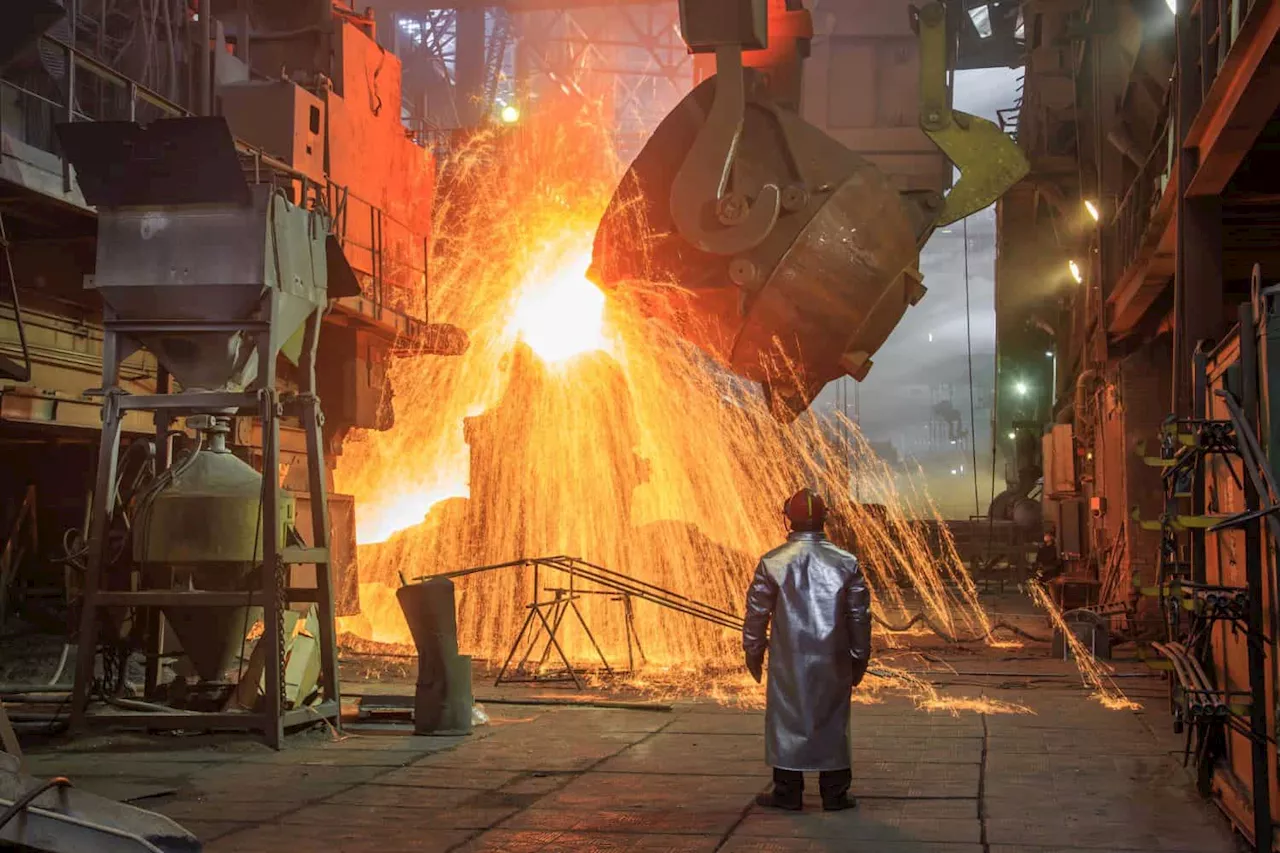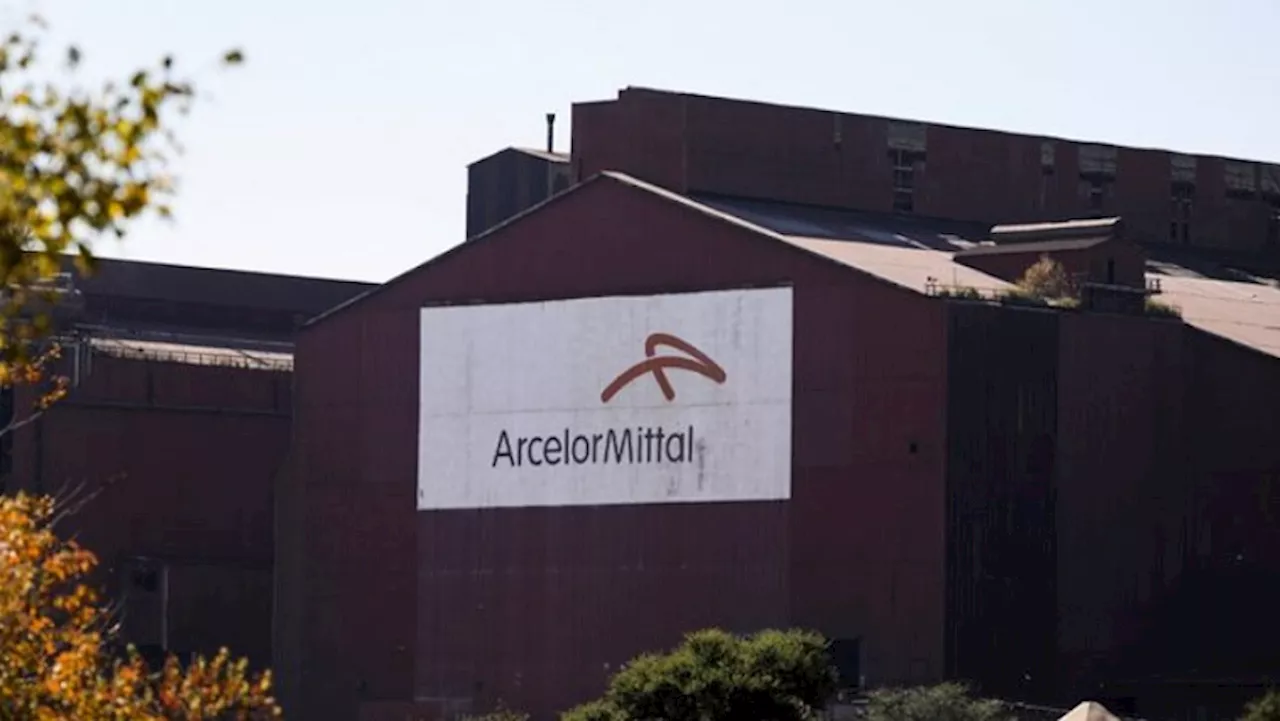ArcelorMittal SA's (Amsa) closure of its long steel operations in South Africa coincides with a government review of steel tariffs, raising questions about the future of the country's steel industry. The review comes amidst competing interests, with some calling for protectionism and others advocating for open markets.
The government of South Africa has embarked on the most extensive review of steel tariffs in its history, coinciding with the announcement by ArcelorMittal SA (Amsa) that it will shutter its long steel operations, including plants in Newcastle and Vereeniging, as well as its rail and structures division. This decision comes just months after Amsa was subjected to a 52.81% anti-dumping duty on structural steel.
While the anti-dumping duty and a pre-existing 10% duty on imported long-rolled steel (the maximum allowed under SA's World Trade Organization commitments) are significant factors, they don't appear to be the sole drivers behind Amsa's struggles.The South African steel industry is a complex landscape of competing interests. Some advocate for increased protectionism, while others push for greater market openness. Gerhard Papenfus, CEO of the National Employers’ Association of South Africa (Neasa), has called for the immediate elimination of import duties on all long steel products, arguing that with Amsa's withdrawal from long steel production, the only remaining justification for these tariffs is revenue generation for the state.Other analysts point to an oversupply of finished steel products in the domestic market, depressing the prices of long-steel products below international levels. Oren Kaplan, chairperson of Cape Gate, expressed this view in Business Day, urging the government and industry to prioritize the health of the entire steel market over propping up a struggling, environmentally problematic, and inefficient entity like Amsa.The situation is further complicated by the substantial subsidies given to mini mills (which produce long steel, similar to Amsa) amounting to R8.5 billion annually, while Amsa receives no such support. The Industrial Development Corporation (IDC) has a considerable exposure to these mini mills, with a loan portfolio of R14 billion, nearly ten times Amsa's current market capitalization. These mini mills rely on scrap metal as their raw material, benefiting from a price preference system (PPS) implemented in 2013. The PPS restricts the export of scrap metal unless it is first offered to domestic consumers at a discount to the international price at the time of sale. This has created unintended consequences, leading the government to impose an export duty on scrap metal in an attempt to curb loopholes that allowed local buyers to purchase scrap at discounted rates and then export it at a substantial profit. This situation resembles a game of whack-a-mole, where addressing one issue simply leads to the emergence of another, according to Donald MacKay, CEO of XA Global Trade Advisors. The government and IDC have heavily invested in the mini mill sector. Notably, one such mini mill is currently under business rescue, with a debt exposure to the IDC of approximately R1.5 billion, equivalent to Amsa's current market cap. There are clear problems within the mini mill market. Nearly all of their product is dumped on foreign markets, posing a risk of countervailing duties in these countries in the future, MacKay warns. He believes the government faces a difficult dilemma. If it withdraws its support for mini mills, the IDC would suffer significant losses.MacKay suggests several options the government might consider during its review of 611 tariff codes for steel: - Mitigating the most problematic aspects of the PPS on scrap metal. While this wouldn't address the long steel issue, it would likely result in a transfer of value from Kumba Iron Ore to Amsa, effectively amounting to a subsidy paid by mining to industry.- Removing the export duty on scrap metal. This could potentially stimulate the domestic steel market, but it might also exacerbate the oversupply issue. - Increasing tariffs on steel imports. This could protect domestic producers but might lead to higher prices for consumers and retaliation from trading partners.The International Trade Administration Commission of South Africa (Itac) has set a deadline of June 2025 to finalize its review of steel tariffs, a remarkably swift timeline for such a comprehensive undertaking. Itac oversees SA's trade administration and handles applications for tariff support, requiring applicants to demonstrate reciprocity in terms of meeting government's employment and investment goals.Around R66 billion worth of steel imports are under review, with intermediate goods accounting for the majority of duties imposed. Of the R83 billion collected annually by the South African Revenue Service (Sars) on duties, steel contributes R3.5 billion, and 84% (R2.9 billion) of this revenue comes from duties on intermediate goods
STEEL TARIFFS SOUTH AFRICA ARCELORMITTAL MINI MILLS TRADE POLICY SCRAP METAL
South Africa Latest News, South Africa Headlines
Similar News:You can also read news stories similar to this one that we have collected from other news sources.
 ArcelorMittal South Africa to Close Long-Steel Works, Leading to Thousands of Job LossesArcelorMittal South Africa will shut down its long-steel operations, resulting in an estimated 3,500 direct job losses and a further 293,754 indirect job losses. The company cites persistent challenges like weak economic growth, high logistics and energy costs, and cheap steel imports from China as reasons for the closure. Despite attempts by the government and industry stakeholders to find solutions, the company says it was ultimately unable to overcome these structural difficulties.
ArcelorMittal South Africa to Close Long-Steel Works, Leading to Thousands of Job LossesArcelorMittal South Africa will shut down its long-steel operations, resulting in an estimated 3,500 direct job losses and a further 293,754 indirect job losses. The company cites persistent challenges like weak economic growth, high logistics and energy costs, and cheap steel imports from China as reasons for the closure. Despite attempts by the government and industry stakeholders to find solutions, the company says it was ultimately unable to overcome these structural difficulties.
Read more »
 ArcelorMittal South Africa to Shut Down Long Steel Business, Citing Economic ChallengesArcelorMittal South Africa's decision to close its long steel business threatens 3,500 direct and indirect jobs at its Newcastle and Vereeniging operations. The company cites prolonged weak economic conditions, logistics and energy challenges as reasons for the shutdown. Industry players express disappointment and warn of broader economic consequences, highlighting South Africa's struggle with deindustrialization.
ArcelorMittal South Africa to Shut Down Long Steel Business, Citing Economic ChallengesArcelorMittal South Africa's decision to close its long steel business threatens 3,500 direct and indirect jobs at its Newcastle and Vereeniging operations. The company cites prolonged weak economic conditions, logistics and energy challenges as reasons for the shutdown. Industry players express disappointment and warn of broader economic consequences, highlighting South Africa's struggle with deindustrialization.
Read more »
 ArcelorMittal South Africa to Close Long-Steel Business, Reopen Iron Ore MineArcelorMittal South Africa (Amsa) announced the closure of its long-steel production business, resulting in an estimated 3,500 job losses. The company will refocus on its flat-steel business and explore new opportunities, including reopening its Thabazimbi iron ore mine. CEO Kobus Verster stated that the loss-making long-steel segment negatively impacted the company's overall performance and investment capabilities.
ArcelorMittal South Africa to Close Long-Steel Business, Reopen Iron Ore MineArcelorMittal South Africa (Amsa) announced the closure of its long-steel production business, resulting in an estimated 3,500 job losses. The company will refocus on its flat-steel business and explore new opportunities, including reopening its Thabazimbi iron ore mine. CEO Kobus Verster stated that the loss-making long-steel segment negatively impacted the company's overall performance and investment capabilities.
Read more »
DTIC Seeks Solutions to Avert ArcelorMittal South Africa ClosureThe Department of Trade, Industry and Competition (DTIC) is working to find a long-term solution to prevent the closure of ArcelorMittal South Africa's (AMSA) steel operations, which could result in the loss of about 3,500 jobs. The DTIC is engaging with stakeholders to explore ways to resolve AMSA's challenges and make recommendations to the president. The department also emphasizes the need for productivity improvements, supply chain efficiencies, investments in low-carbon technologies, competitiveness, and local procurement of steel products.
Read more »
 South Africa emerges as Africa’s leading Crypto hubCryptocurrency is transforming South Africa by driving financial inclusion, enabling small businesses to access global markets, and offering an instant, trustless payment system with world-changing potential.
South Africa emerges as Africa’s leading Crypto hubCryptocurrency is transforming South Africa by driving financial inclusion, enabling small businesses to access global markets, and offering an instant, trustless payment system with world-changing potential.
Read more »
 South Africa: How South African Women Navigate Gender Issues on TikTokThe Centre for Analytics and Behavioural Change (CABC) has released its latest report, Gender-Based Violence and Misogyny TikTok Analytics and Narrative Update in South Africa, on the online conversation regarding gender-based violence and misogyny.
South Africa: How South African Women Navigate Gender Issues on TikTokThe Centre for Analytics and Behavioural Change (CABC) has released its latest report, Gender-Based Violence and Misogyny TikTok Analytics and Narrative Update in South Africa, on the online conversation regarding gender-based violence and misogyny.
Read more »
